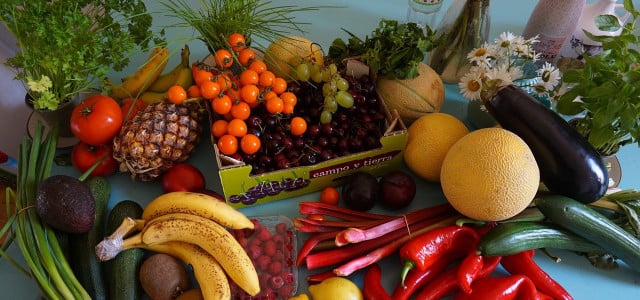Struggling to focus or remember little details? Your diet could be the key to improving your mind; we’ll share ten foods that are good for your brain and memory.
We’ve all had those moments when we forget where we put the keys or forgot our friend’s birthday. But if you’re finding it difficult to focus and stay alert, making some simple changes to your diet could help to improve your memory and cognitive thinking. Cognitive thinking refers to ways our brains learn and understand new things, such as problem-solving skills, judgment and recall.
Cognitive decline can happen as we age, with increased memory loss and reduced alertness. But we can make a few dietary changes to help keep our brains healthy. We’ll discuss ten foods that are good for your brain and memory that you can include in your diet.
Note: If you consistently find yourself forgetting things and your lack of focus affects your ability to complete daily tasks, a trip to the doctor may be necessary to rule out any underlying health conditions.
1. Strawberries: Good for the Brain
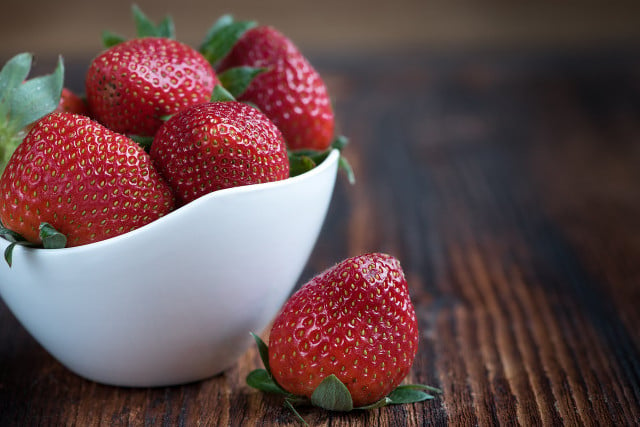
Our first food that is good for the brain is strawberries. A recent study concluded that a compound in strawberries called pelargonidin is associated with improved cognition and a lower risk of Alzheimer’s disease. Pelargonidin also has anti-inflammatory properties, which enables better movement of nutrients between brain cells.
Another benefit of strawberries is that they are a source of water, so eating them can help avoid dehydration. Dehydration can cause issues with working memory, self-control and flexible thinking — all needed for completing day-to-day tasks.
There isn’t conclusive research about how many strawberries per day to eat to boost your brain and memory, but you can start with about half a cup per day. You can sprinkle strawberries on porridge or coconut rice pudding, blend them into vegan strawberry milk or put them on top of a cake. Or try making a strawberry sandwich or strawberry lasagna. To have a constant supply, learn how to grow strawberries indoors.
2. Matcha: Good for Memory
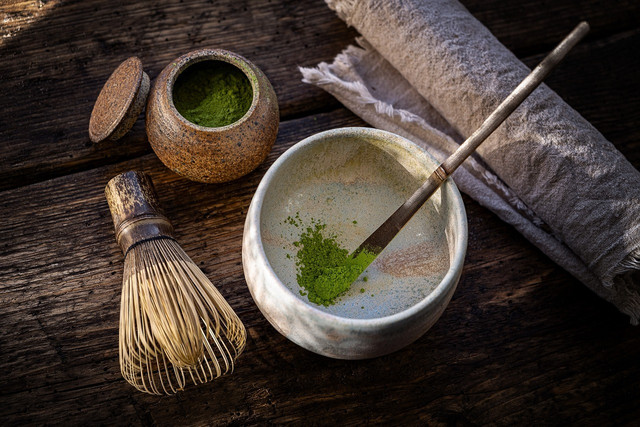


You may have heard a lot about the health benefits of matcha lately, but did you know it’s a food that is good for your brain too? Matcha is made from the same plant that regular green tea comes from, except that it is made using leaves that are grown in the shade. They are ground into a fine powder that is full of antioxidants and nutrients which can protect the brain, according to recent research. Antioxidants work to fight harmful free radicals which enter our body via oxygen and damage and destroy brain cells, leading to memory loss.
However, the body can use antioxidants from food to fight free radicals and slow the aging process. Colorful fruit and vegetables are full of antioxidants, as is green tea. Matcha has an even higher concentration of antioxidants than green tea, making it a good food for memory. Matcha powder can be served in a drink, such as dirty matcha latte, golden matcha latte or iced matcha green tea latte, and in baking, for example, matcha cookies.
3. Black Lentils: High in Flavonoids
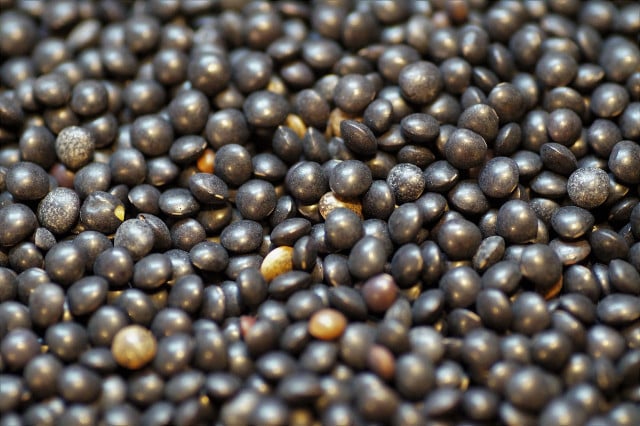


Black lentils contain flavonoids and anthocyanins, which, according to a 2021 study, have antioxidant and anti-inflammatory effects. This can improve brain health and reduce the loss of cognitive abilities such as memory, attention, processing speed and problem-solving.
Black lentils are also high in fiber. A 2022 study found that eating a diet high in fiber may reduce the risk of getting dementia for those between 40 and 64 years of age. It is thought that it might be due to the interactions between the brain and the gut — fiber can regulate the healthiness of the gut, which can reduce inflammation of the brain.
4. Avocados: Aid Cognitive Performance
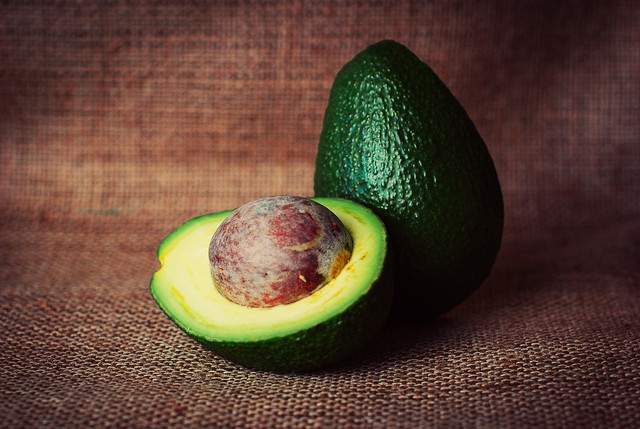


Research carried out by Tufts University concluded that avocados are a good food for your brain and memory. Participants in the study ate one avocado per day for six months, and the results showed an improvement in problem-solving and working memory. This may be due to the presence of the antioxidant lutein, which is absorbed by the brain after consuming avocados.
Each cell in the body makes adenosine triphosphate, or ATP, which helps in reducing inflammation and improving cognitive performance — consuming lutein assists in producing enough ATP for the body. Like black lentils, avocados are full of fiber.
There are some downsides to eating avocados, however. Firstly, they are quite fatty: one avocado contains more than 240 calories. Secondly, you should consider the environmental impact of consuming avocados, which have a high carbon footprint. Learn more about the benefits and drawbacks of avocado.
Avocados can be eaten in various ways, such as in a tasty avocado mango salad or a Vietnamese avocado smoothie.
5. Spinach: Full of Antioxidants
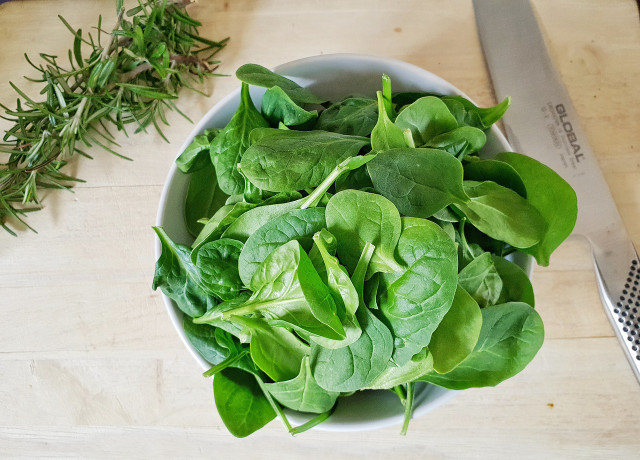


Full of lutein and beta-carotene carotenoid antioxidants, spinach is a good food for the brain and memory. A 2020 study found it can reduce the chances of poor cognitive function in women as they age. The antioxidant carotenoids in spinach work to fight oxidative damage to brain cells. A similar study found that the brain responses of middle-aged participants who consumed high levels of lutein were similar to those of younger people.
Other foods that contain carotenoids are bell peppers, leafy greens, tomatoes and sweet potatoes. Still, it should be noted that they need to be consumed over several years to see a significant benefit.
Why not try this tasty spinach and feta pizza or, for something different, check out vegan spanakopita or even a green smoothie?
6. Tempeh: Rich in Iron and Protein
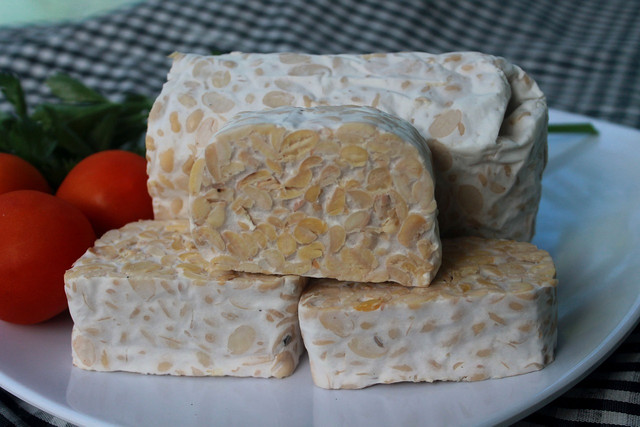


Tempeh is made from fermented soybeans and is a good source of protein, which can prevent the deterioration of cognitive functioning, according to a 2022 study. Interestingly, the research found that higher brain power came from consuming plant-based proteins. Tempeh is also a good source of iron, which can help with cognitive functioning. Iron also helps transport oxygen to the brain.
Find out how to make tempeh and use it in different dishes such as vegan gado-gado and tempeh bacon.
7. Walnuts: Boost Memory
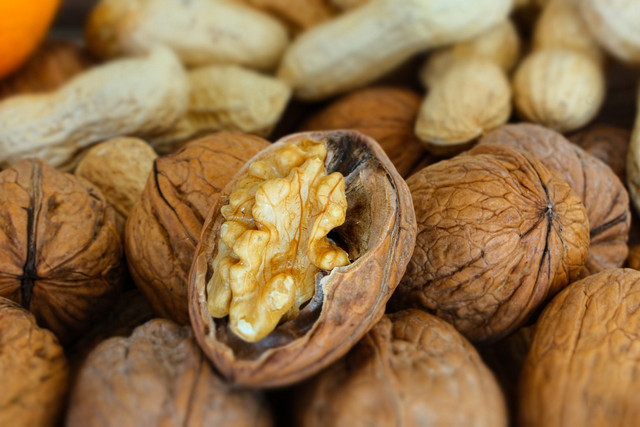


Nuts are packed full of healthy fats and protein and walnuts in particular have been proven to improve cognitive thinking and memory. They contain an omega-3 fatty acid called alpha-linolenic acid or ALA, which is anti-inflammatory and can lower blood pressure and clean arteries, helping aid brain function and memory.
Walnuts can be eaten as a snack or used in a range of recipes such as a vegan roast, vegan stuffed mushrooms and walnut milk.
8. Turmeric: Good Food for Your Brain and Memory
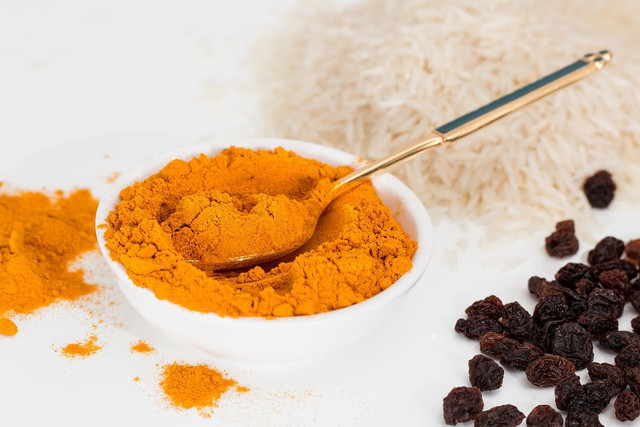


Turmeric is a dried, golden-orange spice that is used in cooking to add color and flavor. It comes from the root of the plant. The active ingredient in turmeric is called curcumin, which is an antioxidant and has anti-inflammatory properties. Research has shown that consuming turmeric can improve memory in Alzheimer’s sufferers. According to a 2018 research paper, it can also improve brain cell growth and delay age-related memory loss.
However, participants of these studies took highly concentrated supplements of curcumin, which would be more than people typically use in cooking (turmeric itself only contains around 3-4% curcumin). Therefore, it’s best to take a turmeric supplement for real brain and memory results.
Turmeric can be used in various dishes, as well as drinks like turmeric milk or Indonesian jamu.
9. Broccoli: Vitamin-K Rich Brain Food
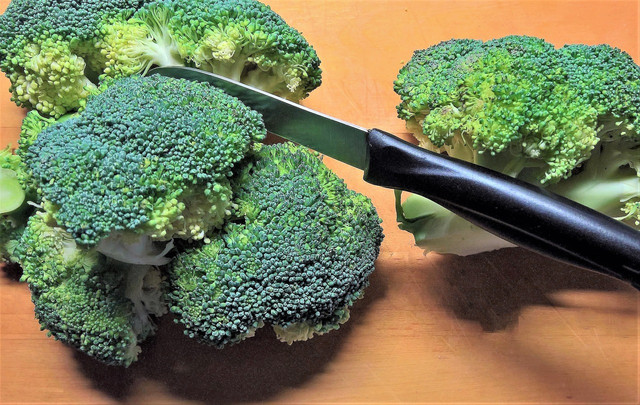


Broccoli can supply the recommended daily intake of vitamin K in one serving. A 2016 study found that vitamin K can improve memory in older people and sharpen the mind. Vitamin K helps to form sphingolipids, which are a type of fat that is needed in the structure of brain cells.
Broccoli also has anti-inflammatory and antioxidant properties. Broccoli doesn’t just have to be eaten boiled or steamed — you can make an easy broccoli cheese soup or even try making broccoli pesto.
10. Dark Chocolate: Good for Memory



Dark chocolate contains more cocoa than milk chocolate, as well as antioxidants and flavonoids. The latter can help to improve memory and slow mental aging of the brain. Chocolate also improves mood when eaten in a mindful way. In a 2016 study, participants mindfully consumed chocolate and reported more positive feelings than those who ate plain crackers or didn’t practice mindfulness.
If you are on a plant-vased diet, learn more about whether dark chocolate is vegan.
Read more:
- How to Improve Concentration: 10 Ways to Focus Better
- Mind Blanking: What Happens When Your Brain Goes Foggy
- 6 Best Meditation Apps to Calm Your Mind
Do you like this post?






